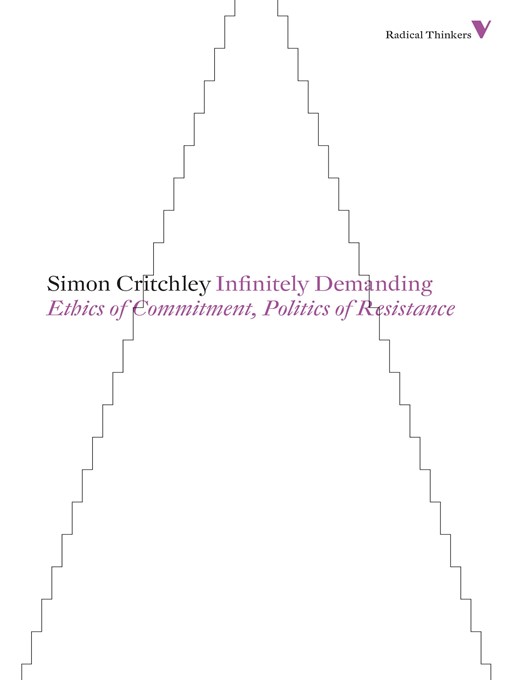- All Fiction
- Military Fiction
- Historical Fiction
- Mystery & Thriller
- Romance
- See all fiction collections
-
Creators
-
Publisher
-
Release date
September 24, 2014 -
Formats
-
Kindle Book
-
OverDrive Read
- ISBN: 9781781680292
-
EPUB ebook
- ISBN: 9781781680292
- File size: 1991 KB
-
-
Languages
- English
-
Reviews
-
Library Journal
July 1, 2007
Critchley (philosophy, Univ. of Essex, Colchester; "Things Merely Are") argues that philosophy begins not from a sense of wonder but from disappointment. What concerns him especially is political disappointment, the common belief that something is radically amiss with the world. One response to disappointment is nihilism, the denial that the world has value. Passive nihilists, e.g., political theorist John Gray, whose "Straw Dogs" is a counterpoint to Critchley's book, accept the loss of value with resignation. Active nihilists, by contrast, wish to destroy the present world through revolutionary violence, hoping that something better will emerge. Critchley rejects both kinds of nihilism. Instead, he favors an ethics in which the ethical subject is split "between itself and a demand it cannot meet." Critchley has been influenced in this view by French philosophers Alain Badiou and Emmanuel Levinas and Danish thinker Knud Logstrup, and he gives a clear exposition of their ideas. In political practice, his ethical perspective leads to a form of anarchism: he calls for resistance to the "ideological moralism" of current American foreign policy. A stimulating analysis; highly recommended for philosophy and political theory collections.David Gordon, Bowling Green State Univ., OHCopyright 2007 Library Journal, LLC Used with permission.
-
Formats
- Kindle Book
- OverDrive Read
- EPUB ebook
subjects
Languages
- English
Loading
Why is availability limited?
×Availability can change throughout the month based on the library's budget. You can still place a hold on the title, and your hold will be automatically filled as soon as the title is available again.
The Kindle Book format for this title is not supported on:
×Read-along ebook
×The OverDrive Read format of this ebook has professional narration that plays while you read in your browser. Learn more here.

